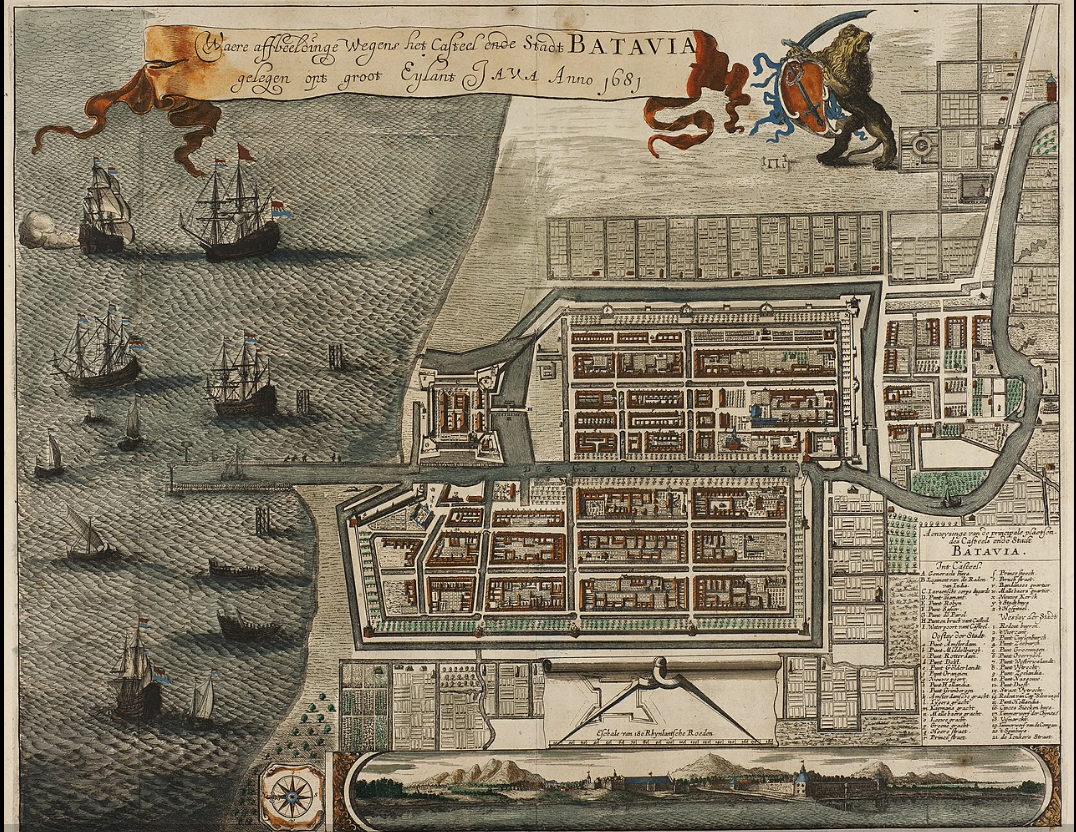Call for Papers. ‘Colonial Mobility and Legal Encounters: Rethinking the Dutch East Indian Company (VOC)’s Role in Asia’
Dates: 25 and 26 March 2026
Location: University of Amsterdam, the Netherlands
Abstract Deadline: 1 December 2025
In his seminal work De Jure Praedae, Hugo Grotius, often recognised as the ‘father of international law’, argued that commerce with Asia was essential for sustaining the Dutch state. The Dutch East India Company (VOC) operationalised this vision, becoming a transformative force in early modern global trade and colonial practices. Yet, Grotius’s economic justification belied the VOC’s more complex reality: a hybrid entity that functioned simultaneously as both a commercial enterprise and a quasi-governmental entity. This dual identity enabled the VOC to mobilise immense economic, military, legal, and ideological resources to secure colonial footholds across Asia, from places like Japan, Taiwan, Macao, and Indonesia, until the mid-eighteenth century.
This workshop seeks to critically interrogate the mechanisms of this expansion, focusing on the concepts of ‘colonial mobility’ and ‘legal encounters’. We understand the VOC not as a static entity, but as a mobile and adaptive agent whose strategies of governance, jurisdiction, and negotiation actively shaped — and were shaped by — Asian contexts. The ‘colonial mobility’ of the VOC makes it a pivotal subject for understanding how early modern colonial empires functioned beyond traditional state structures. The VOC’s colonial mobility also has a contemporary resonance, as global corporations restrict and reshape state sovereignty in former colonies across Asia. Our intuition is that the VOC’s repertoire of legal techniques forms a kind of ‘imperial debris’ that continues to influence corporate-state dynamics and restrict sovereignty in post-colonial Asia.
Despite extensive research on the VOC, most studies focus on the European side of colonial history. This workshop aims to build on the recent works that prioritises the VOC’s activities in Asia, examining the dynamic, often contested, encounters between the Company’s legal frameworks and the diverse political and legal orders it encountered. We particularly welcome contributions from scholars (including the young/emerging voices) based in or focusing on the global South, especially former Dutch colonies in Asia. We encourage interdisciplinary approaches and submissions that engage creatively with underutilised archives. Studies on the VOC’s footprint in Africa are also welcome to form a conversation and comparison with its presence in Asia.
We welcome contributions from, but not limited to, the following themes and perspectives:
(1) The mobility of legal forms: how did the VOC’s legal architectures – charters, treaties, contracts – changes and adapt across different Asian contexts?
(2) Decentring European narratives: how can we reinterpret VOC history from local and indigenous perspectives?
(3) Sites of encounter: examining specific legal and cultural exchanges, conflicts, and negotiations between the VOC and local entities in ports, courts, and trading posts.
(4) Corporate sovereignty: investigating the state-corporate dynamics in VOC operations.
(5) Archival interventions: methodological reflections on mapping, accessing and decolonising VOC-related archives beyond the Netherlands.
(6) Comparative perspectives: a comparative study of the VOC and other colonial companies, such as but not limited to the Dutch West India Company (WIC) and British East India Company (EIC).
(7) Contemporary resonances: reflections on how the history of the VOC is useful to understand the present relationship between global corporations and international law.
Contributions engaging with primary archival sources are highly encouraged, and submissions involving archives in languages other than English are most welcome. To promote creative engagement with archives, we also provide an indicative but non-exhaustive list of relevant archives at the end of this CFP.
Workshop Format and Outcomes:
This workshop will bring together selected participants with senior scholars for a series of panels and roundtable discussions designed to provide constructive feedback. Following the workshop, the organisers will look to select papers for publication in a proposed special journal issue.
The workshop is open to scholars of all disciplines and all career stages working on and thinking with international law and colonialism, the Dutch East Indian Company (VOC), and (de-)coloniality. The workshop will include a keynote lecture by Professor Sundhya Pahuja.
Deadlines and Logistics
We request that you submit your abstracts (300 words) using this form by 1 December 2025. Selected participants will be notified by 10 December 2025. Draft papers (5,000-6,000 words) will be due by 25 February 2026 to allow for pre-circulation and in-depth discussion. Limited funding is available to support travel and accommodation costs, prioritising scholars from the global South and/or without access to institutional funding. Questions and inquiries can be directed to vocintlaw@gmail.com.
Organisers and Funders
Zhonghua Du (University of Amsterdam), Yilin Wang (University of Macau), and André Dao (University of Melbourne).
This workshop is funded by the Decolonial Futures Research Priority Area at the University of Amsterdam. It is also supported by the Laureate Program in Global Corporations and International Law at the University of Melbourne, and Amsterdam Center for International Law at the University of Amsterdam.
We look forward to receiving your abstracts.


